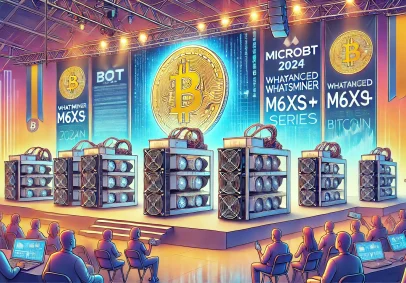Best Bitcoin (BTC) Mining Pools
Mining pools are communities of miners who combine their strength and equipment power to generate blocks more efficiently. Likened to mining cryptos in solo mode, the probability of quickly calculating a hash in pools is higher.
All earned coins are fairly distributed among all users. Each share is calculated based on the capacity of the equipment made available to the pool. This review will present the best BTC mining pools on your own PCs (not to be confused with services for cloud mining). Our rating will allow you to find out the advantages and disadvantages of each pool and use this information to the maximum benefit.
What is a Bitcoin Mining Pool?
Bitcoin mining pool combines several miners' efforts to increase the odds of successfully cracking blocks and evenly spreading rewards between participants. This becomes particularly important given the increased difficulty of mining, which requires more powerful computing resources.
What are the Reward Methods?
What are the Bitcoin mining pools based on the reward distribution method:
- Pay-Per-Share (PPS)
The first and most common option for distributing profits between miners is payment for a share (share).
Here, a pool participant receives a reward depending on his contribution to finding a solution to the block (that is, for each share). The contribution is determined based on the hash rate, the number of attempts to solve a problem per second.
- Pay-Per-Last-N-Shares (PPLNS)
In this scheme, it is essential that the bitcoin mining pool mines the block. To determine your reward, the pool checks the number of the last N shares sent, where the value of N depends on the pool. Next, the pool divides the number of shares you sent by N and multiplies it by the reward after deducting the coordinator's commission.
If the pool mines a block and receives a reward of 15 BTC, and the operator's commission is 10%, then 13.5 BTC will be distributed among the miners. If the pool's number N is 1,000,000, and the miner sends 50,000 shares, his reward is 5%; that is, he should receive 0.675 BTC.
There are also other variations of remuneration distribution, which are based on the identical PPS and PPLNS.
Best 5 Bitcoin Mining Pools
Slush Pool
Slush Pool is the first pool for mining the leading cryptocurrency, which opened in 2010, when few people knew about it, and became a pioneer and example for subsequent projects. The company is managed by SatoshiLabs and is headquartered in the Czech Republic.
The Score formula is used to calculate miners' remuneration (the reward depends on the time from the moment the share is provided). This prevents participants from fleeing to competing btc mining pools.
Antpool
The largest service, Antpool, is based in China and operated by Bitmain Technologies. It accounts for 17.4% of the network's computing power (second result). The main advantage is the ability to choose from two possible methods of calculating remuneration:
- PPLNS (no commission);
- PPS (with 2.5% commission).
Payments for work are made once a day; the lower threshold is 0.001 BTC. The control panel, with detailed information about income, block calculation speed, etc., will be clear even to beginners.
Kano CKPool
The small Kano CKPool (or Kano Pool) has been operating since 2014. The settlement model with miners is PPLNS (reward depending on the latest data in the pool of N-shares), and the commission is 0.9%. As of the beginning of February 2018, its share is 0.4% of the network capacity. The number of calculated blocks is 2-3 per day.
Unlike other services, Kano Pool exclusively supports Bitcoin mining. There is no minimum payment threshold—you can receive small but regular payments for computing power.
F2Pool
The F2Pool service has been operating since 2013 under the jurisdiction of China. The capacity share is 6.3%. The PPS system is used to pay miners (by the size of the share handed over to the pool). The significant disadvantage of the service is high commissions - 4%.
In addition to BTC, the service can mine LTC, ETH, and ZEC payouts daily, with a threshold of 0.001 bitcoin. The key difference from other Asian btc mining pools is that the English-language interface with accessible, presented, and concise information makes it convenient even for novice crypto miners.
Eligius
The Eligius mining pool is one of the oldest (opened in 2011). Its head office is located in the USA. Small, it controls only about 1% of the total computing power. It supports Bitcoin and name coin mining. Becoming a member of the Eligius community is very easy—no registration is required.
The main advantage of the service is the complete absence of commissions. Miners receive one hundred percent of the reward for computing the hash, including payments for operations.
What are the risks at BTC Mining pools?
There is a risk of falling into fraudulent mining pools, which may threaten the security and trustworthiness of the miner's funds. Some btc pools may be exposed to hacking, so performing detailed research before participating is essential. You should select pools with a good reputation and proven security measures.
How to choose the BTC pool?
Miners should conduct thorough research before joining a pool. The ultramining web resource provides a rating of Bitcoin mining pools, which can serve as an excellent resource for choosing the most suitable pool according to its characteristics and needs.
Using Bitcoin mining pools is an efficient and profitable method that allows miners to join forces and increase the likelihood of successfully solving blocks. When choosing a btc mining pool, it is essential to consider ratings and recommendations to ensure maximum efficiency and stable income.
Conclusion
Bitcoin (BTC) is the most popular cryptocurrency in the world, and mining is one way to obtain new bitcoins. However, as mining difficulty increases and competition among miners increases, individual Bitcoin mining becomes less efficient. This is where Bitcoin mining pools come to the rescue.
Bitcoin mining pools allow miners to pool their resources and increase their chances of successfully solving blocks and receiving rewards. They also provide a stable income stream and reduce the income variability associated with solo mining. Joining a Bitcoin mining pool can be profitable for miners looking to increase their mining efficiency and earn a stable income.


